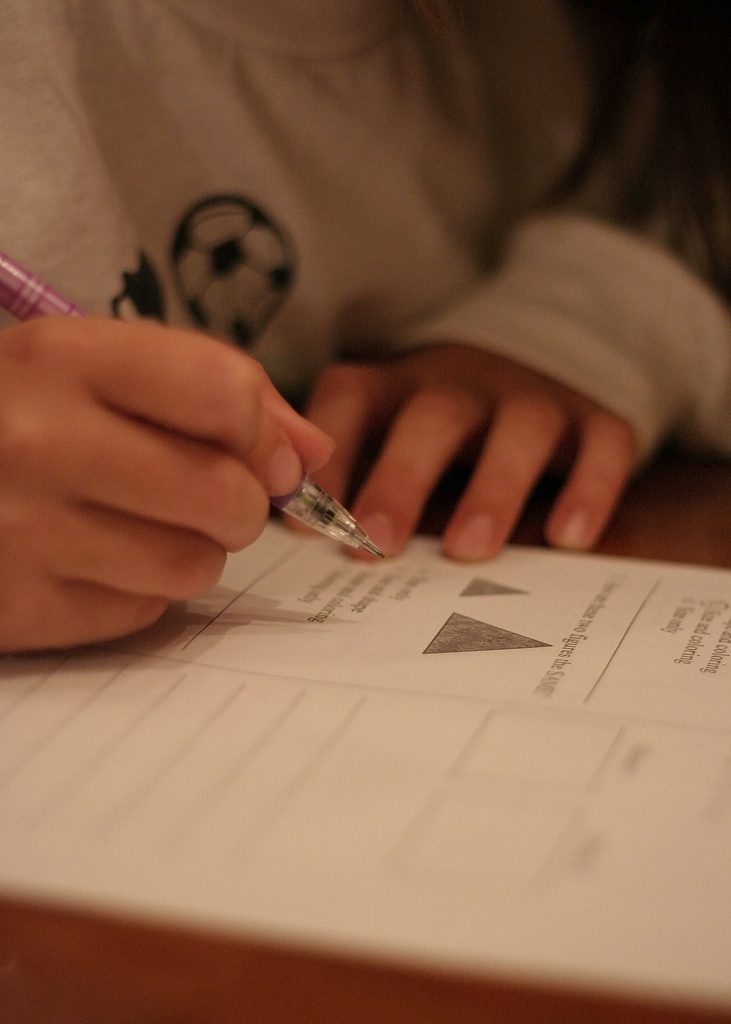Parents: when it’s time for math homework, do you suddenly have something else to do? When it’s parent-teacher conference time, do you first tell the teacher that you’re no good at math yourself?
First off, you’re not alone. It’s the number one thing I hear from parents: “I don’t know how to help my kid with math!” So I asked one of my favorite math teachers, Tiffany Choice. As an elementary and middle school teacher, Ms. Choice is a math education expert. And because of that, we instantly connected. Oh, she was also my daughter’s fourth grade teacher.
I asked Ms. Choice to share her best advice for parents. Want to help your kid succeed at math? Here’s how.
Just because you struggled in math class doesn’t mean your kid will.
Don’t pass on your dislike or acceptance of not being “good at math.” Always highlight the importance of math. If you cannot provide math homework support, find someone who can. Even if your kid has to call an uncle across country to try help clarify a problem, it goes a long way.
Math is best understood when applied to the real world.
Show your kids how you use dollars and coins at the store. Encourage understanding when they use birthday money to buy things. Discourage them from throwing the wad of money on the counter without understanding what they are doing. Explain to your child what you are doing when balancing that checkbook, measuring a wall or following a recipe. You are your child’s first teacher.
How you were taught to do something in math may or may not be the best way.
Education is swiftly changing to keep up with technology and each generation. Be open to many new ways of learning math concepts. Ask your child’s teacher to show you how a concept is being presented. I’ve had parents stop in during math instruction or for an after school conference.
Math isn’t learned right after the first lesson.
Parents should emphasize and allot time for practice — just like we encourage practicing the piano, ballet, reading, soccer, or French.
Realize the importance of and reinforce math vocabulary.
Math isn’t just numbers, it’s words too. Talk about what 20% off really means when they’re asking for that new toy. Use the words “total,” “difference,” and even “mixed number.” Believe it or not, truly knowing what those math words mean helps in the long run. I hate to mention standardized tests, but it’s something that’s here to stay (at least for now). More and more, math tests are transforming into reading tests. Most of the questions are word problems. Certain understanding of math vocabulary can and will help your child avoid the sneaky test-makers tricks.
I’ll add one more thing: Encourage your child to explain their reasoning behind the math they’re doing — whether you’re helping with homework or asking him to divy up candy pieces at a play date. One of the biggest things that kids are being asked to do is write about math. (In my daughter’s school, these are called BCRs or Brief Constructed Response and ECR or Extended Constructed Response.) The kids who already verbalize their understanding of math will have an easier time with these tasks.
Do you have advice for parents? Whether you’re a teacher, parent or innocent bystander share your ideas in the comments section. Have a question? Share that, too!


